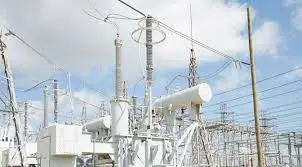Thefts from utilities are increasing
Billing reports showed only sporadic use of electricity throughout the month, with spikes at different times. Maybe someoneÂ’s rigging the meter, they thought, so it measures only a small portion of the electricity used.
They got the proof they needed when they saw the meter, with a hole drilled in its faceplate and a thin wire jammed into it.
“Confirmed,” said Steven Glenn, revenue protection manager for KCP&L, as his investigator shut off power to the house.
The two were soon heading for a home in south Kansas City. Another suspected theft. In a dismal economy where many laid-off workers struggle to pay bills, utilities across the country are seeing a growing number of customers resorting to theft.
Stealing the electricity or natural gas they need, no matter what the cost to themselves if something goes wrong, or to their pocketbooks once theyÂ’re caught.
“We’re going out and shutting off the meter,” said Glenn, “and after we leave, they go back out and turn it on.”
TheyÂ’re stealing in several ways, including tampering with meters or hooking up to neighborsÂ’ lines.
In January and February, KCP&L saw a 15 to 20 percent jump in thefts over the same period last year. In Philadelphia, published reports show that 30 percent of the customers who had their electricity cut off early last year were illegally using it at the end of the year.
And in Memphis, Tenn., media reports show a utility experienced a 56 percent surge in thefts over the past several months.
Missouri Gas Energy also is seeing a jump in theft and tampering, and not just in low-income areas.
“We’ve seen $300,000 houses,” said Jason Fulp, spokesman for Missouri Gas, which serves a half-million customers in the western part of the state. “People who have been hit by the economy.... It’s getting into new areas.”
People who steal from utilities can face extra costs related to damage and be required to pay their entire bills without the benefit of payment plans.
They also may end up in court. Large thefts can lead to felony charges. KCP&L often sends cases to municipal court.
What worries utility workers is theyÂ’ll only see more thefts as the economy continues to weaken. Many people hit with layoffs in late 2008 may just now be struggling with late bills, said Pat Hemlepp of American Electric Power, which serves more than 5 million customers in 11 states, including Ohio and Michigan.
“These are likely some people who have never faced this before,” Hemlepp said. “People who’ve been employed and never need assistance with anything.”
ThatÂ’s why utilities, including KCP&L, Missouri Gas and Westar Energy, stress programs that help customers pay their bills without being disconnected.
“We’re trying to deal with it in creative ways,” said Marc Anderson, manager of revenue and protection claims at Westar, which serves the eastern third of Kansas.
Added Glenn: “We’re trying to tell people there are other ways, things other than stealing.”
Customers should alert utilities if theyÂ’re struggling financially, Fulp said.
“If they don’t call us, the problem will only get bigger and bigger and bigger,” he said. “If they ignore the problem, the options we have to help them decrease.”
For those who end up stealing, utilities are watching closely. If an account is disconnected, workers will routinely check to make sure the electricity remains off until the bill is paid or arrangements are made to pay it.
If within a day or two they see electricity is back on at that location, investigators go out.
“We do that… to keep people from stealing,” said Anderson. “But primarily, our motivation is to ensure customer safety.”
With electricity, people can be electrocuted or start fires. An Arkansas man died in July after he tried to use jumper cables to hook up electricity to his house after it was turned off.
With natural gas, the dangers are fires and carbon monoxide poisoning.
“When they screw with the meter, it can cause a leak,” Fulp said. “When people start trying to divert, steal or whatever, that endangers themselves, their neighbors and their families.”
Problem is, people arenÂ’t thinking about the danger, Glenn said. The second house he and his investigator went to also was a case of stealing.
Workers discovered several days ago that the house was getting electricity, but there was no name on the account. It was considered a vacant house, so electricity was cut off.
They went out to check the house after the meter mysteriously turned back on. They found people living in the house had tampered with it and restored power themselves, without paying.
“People steal electricity for two reasons: need and greed,” Glenn said. “Some people perceive they don’t have the ability to pay, and others feel electricity is something everyone should get for free.
“They’re just thinking, ‘Hey, I want my power on.’”
Related News

New Program Set to Fight for 'Electricity Future That Works for People and the Planet'
LONDON - The Center for Biological Diversity on Monday rolled out a new program to push back against the nation's community- and wildlife-harming energy system that the climate advocacy group says is based on fossil fuels and a "centralized monopoly on power."
The goal of the new effort, the Energy Justice Program, is to help forge a path towards a just and renewables-based energy future.
"Our broken energy system threatens our climate and our future," said Jean Su, the Energy Justice Program's new director, in a statement. "Utilities were given monopolies to ensure public access to electricity, but these dinosaur corporations are…




